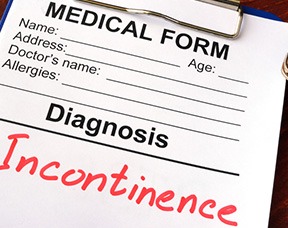Urinary incontinence (UI) is the loss of bladder control and this results in either leaking or uncontrolled urination. The involuntary loss of urine can be debilitating to a man’s self-esteem and daily life. Incontinence itself is not a disease, but it can be a symptom of an underlying medical condition. The key to preventing the problem from occurring is to determine what’s causing it. A visit to your doctor to discuss your symptoms is a great place to start. The following measures below can help you to treat and manage symptoms related to urinary incontinence.
Keep A Bladder Diary
Keep track of the times you’ve had a urinary leak. Record the time, what you were drinking, when you went to the bathroom, and what you were doing at the time, such as coughing, laughing, sneezing, or exercising. The diary will help you and your doctor track down the cause.
Do Kegel Exercises
Kegels involve squeezing and relaxing the muscles of the pelvic floor, which connects via nerves to the bladder. Kegel exercises are a great way to prevent incontinence because they strengthen the muscles of your pelvic floor. Start by finding the right muscles — the ones you’d use to stop yourself from passing gas. Then just tense, hold, and release. Slowly build up until you’re doing three or four sets of 10 of these each day. You can do them lying, standing, or even sitting at your desk.
Avoid Caffeine
Caffeine is a well-known diuretic. It also irritates the bladder and stimulates muscle contractions, which can aggravate the symptoms of urge incontinence. Avoid all beverages that contain caffeine and switch from regular to decaf if you absolutely need to have your morning cup of coffee.
Stay Hydrated
Drink at least eight glasses of water during the day to prevent conditions such as urinary tract infection, constipation, and kidney stones that cause incontinence. You should also consider drinking most of your fluids during the day and limiting the amount of fluids you drink in the evening before going to bed.
Lose Weight
Being overweight can weaken your pelvic floor muscles and can cause incontinence, because of the pressure of fatty tissue on the bladder. Your symptoms may improve, and could clear up completely, if you lose the excess weight. Getting adequate exercise and eating a moderate diet full of fresh fruits and vegetables is a great way to help prevent incontinence.
Treat Constipation Promptly
If left untreated, constipation can lead to stool impaction or development of a dry, hard mass in your rectum. This mass can put an increased pressure on your bladder leading to increased urinary urge or interfere with the emptying of your urinary bladder which in turn can lead to urine leakage. If you have constipation, it may help to change your diet and lifestyle.


